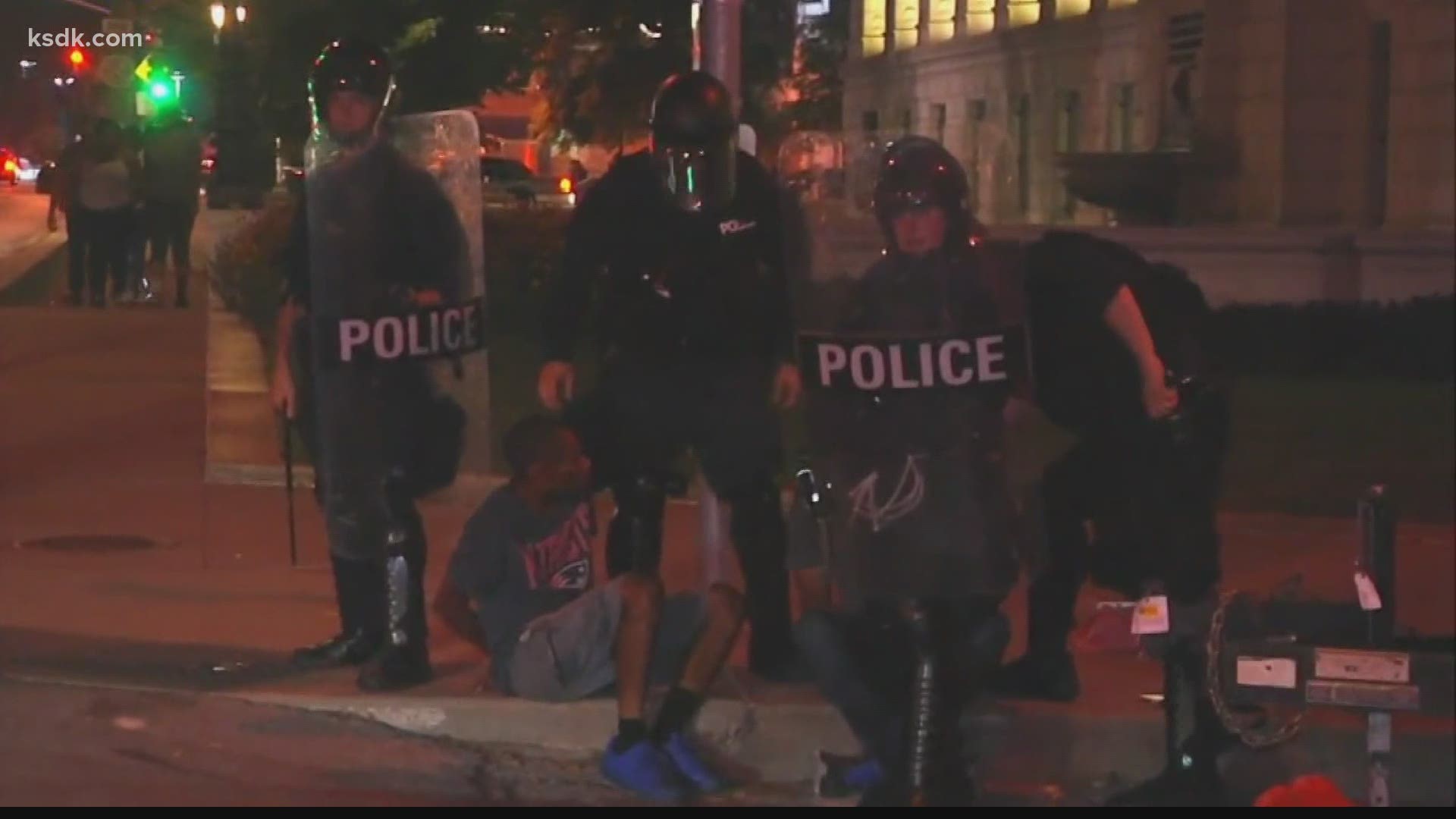ST. LOUIS — Thirty-five seconds.
That’s the amount of time prosecutors say remains unaccounted for in all of the audio and visual evidence that exists from the night St. Louis officers assaulted one of their own who was working undercover as a protester in 2017.
And it’s a point First Assistant U.S. Attorney Carrie Costantin emphasized during her examination of her last witness Wednesday. She’s prosecuting two former St. Louis officers, Dustin Boone and Christopher Myers, and one current officer, Steven Korte, this week.
Two former officers have already pleaded guilty in the case and are awaiting sentencing.
Costantin also closed her witness list with testimony from an expert who extracted damaging text messages from Boone and Myers to their family, friends and even fellow officers.
“Jesus, I felt (expletive) awful when the commanders told me he was a cop. It's so damn embarrassing to be anywhere involved in this,” Boone wrote.
The trial began March 15 with jury selection.
One of the jurors was dismissed Tuesday because of a personal emergency, so the alternate juror was seated.
RELATED: Black woman joins all-white jury in trial of St. Louis officers accused of beating Black colleague
The jury now includes nine white men, two white women and one Black woman. Three alternates remain, including two white men and one Black man.
The jury selection was a great source of tension between prosecutors, defense attorneys and the judge when it began, as prosecutors accused defense attorneys of striking jurors because of their race in a case where race could be a factor.
Hall is Black. The officers accused of assaulting him are white.
Wednesday’s proceedings also included testimony from three officers, Josylin Stone, Det. Andrew Kleffner and Sgt. Matthew Manley.
Stone said she recognized Korte’s voice as yelling, “Hands out, hands out” on Hall’s cellphone audio, which ended during the assault.
Kleffner and Manley both recalled conversations they had with Myers and Boone about the assault during the days after it happened.
Both said Boone told them he kept his knee on Hall’s back and his forearm holding Hall’s head down until he was handcuffed.
“Did he ever say Luther struggled?” Costantin asked
“No,” Kleffner said.
“Did he describe Hall as resisting in any way?” Costantin asked.
“No,” Kleffner said.
Defense attorneys chipped away at how Manley and Kleffner never documented their conversations with their clients, and turned it back on them to say that as police officers, they would not rely on conversations they had with someone as long as a year ago to build a case against them.
Rosenblum noted how Manley didn’t notify Internal Affairs about anything Myers told him because he didn’t see anything wrong with what Myers told him he did that night, including throwing Hall’s cellphone when he thought there was some type of substance on it.
Manley said he asked Myers and Boone about the incident “out of his own curiosity” because there were rumors flying about what happened.
“Everybody was saying Chris (Myers) had kicked him in the head,” Rosenblum said.
“That was a viewpoint that was swirling around out there,” Kleffner said.
“You heard of the telephone game, what was going on in the SLMPD was the telephone game would you agree?” Rosenblum asked.
“Yes,” he said.
Patrick Kilgore, who is representing Boone, also questioned Kleffner.
“He was not holding Luther Hall in place while other officers were beating him?” Kilgore asked.
“If that was happening, I interpreted it as Dustin (Boone) didn't know who was doing that,” Kleffner said.
“Dustin did not know who struck Luther because he said he never saw that happen?” Kilgore asked.
“Correct,” he said.
Defense attorneys are expected to rest their case tomorrow, and closing arguments could begin.

